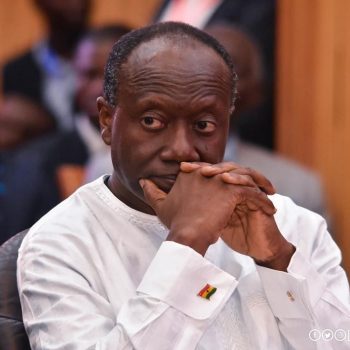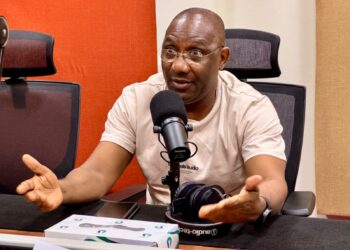An Economist and a Chartered banker Mr. Prince Obiri Yeboah has said that Ghana has already experienced a worse economy from September to December 2022.
Mr. Obiri Yeboah in an interview on Plan B FM morning show EBAANOSEN with Ohene Kinnah, explained that the GDP growth is estimated to have slowed to 3.2% in 2022, down from 5.4% in 2021. The slowdown affected mostly the non-extractive sectors, as the recovery in gold exports supported extractives growth.
The agriculture and service sectors experienced slower growth in 2022 than the year before and that forced the government to address the nation on high increases in commodities.
He said, Ghana’s economic challenges can indeed be attributed to several factors, including reckless spending, corruption, and poor leadership.
One of the key challenges facing the country is high levels of public debt, which has been exacerbated by a history of reckless spending and poor fiscal management.
Meanwhile, Fitch Solutions has reaffirmed its position that economic activities in Ghana will get worse before getting better in 2023.
This is coming despite the expansion of the economy by 4.2% year-on-year in the first quarter of 2023.
According to the UK-based firm, the relatively appreciable growth rate in the first three months of 2023 was primarily driven by strong government consumption as tax revenue shot up significantly.
Fitch Solutions had projected that the country’s budget deficit will narrow substantially to 5.7% of Gross Domestic Product in 2023, from an estimated 8.3% in 2022.
Senior Analyst for Sub-Saharan Africa, Mike Kruninger, speaking on the Mid-Year Review of Sub-Sahara Africa said exports in the first quarter of 2023 remained robust, whilst imports slumped.
“I think it will get worse before it gets better. So in the first quarter of this year, economic growth in Ghana surprisingly was on the upside, having expanded by 4.2% year-on-year, accelerating from the 3.7% recorded in the final quarter of last year”.
“So this acceleration in the first quarter of 2023 was primarily driven by strong government consumption plus exports remained pretty solid, while imports altered”.
Household consumption recorded no growth in quarter 1, 2023
Mr. Kruninger pointed out that household consumption essentially recorded no growth at all, while fixed investments recorded a pretty significant contraction in the first four months of 2023, “implying that domestic conditions will remain weak and that growth will suffer in the quarters ahead”.
“We project real GDP growth to average 3% this year, remaining below Ghana’s pre-pandemic average of 5.3%”, he added.
On why the economy will grow slowly in 2023, Mr. Kruninger said access to credit has been restricted by the high lending rates, which hover around 36% on average.
“Naturally, the next question is why this is the case; that is why Ghana’s economy will operate below capacity in 2023”.
“One of the key reasons is weaker access to credit. So, since late 2021, the Bank of Ghana has raised the policy rate by a total of 1,500 basis points to 29.50%, severally restricting private sector access to credit”.
Due to that, loan uptake contracted by an average of 21% in real terms in the first four months of 2023, indicating that domestic demand is going to weaken.
“In addition, banks in Ghana are facing significant pressure on their balance sheet due to Ghana’s Domestic Debt Exchange Programme”, he added.










Discussion about this post